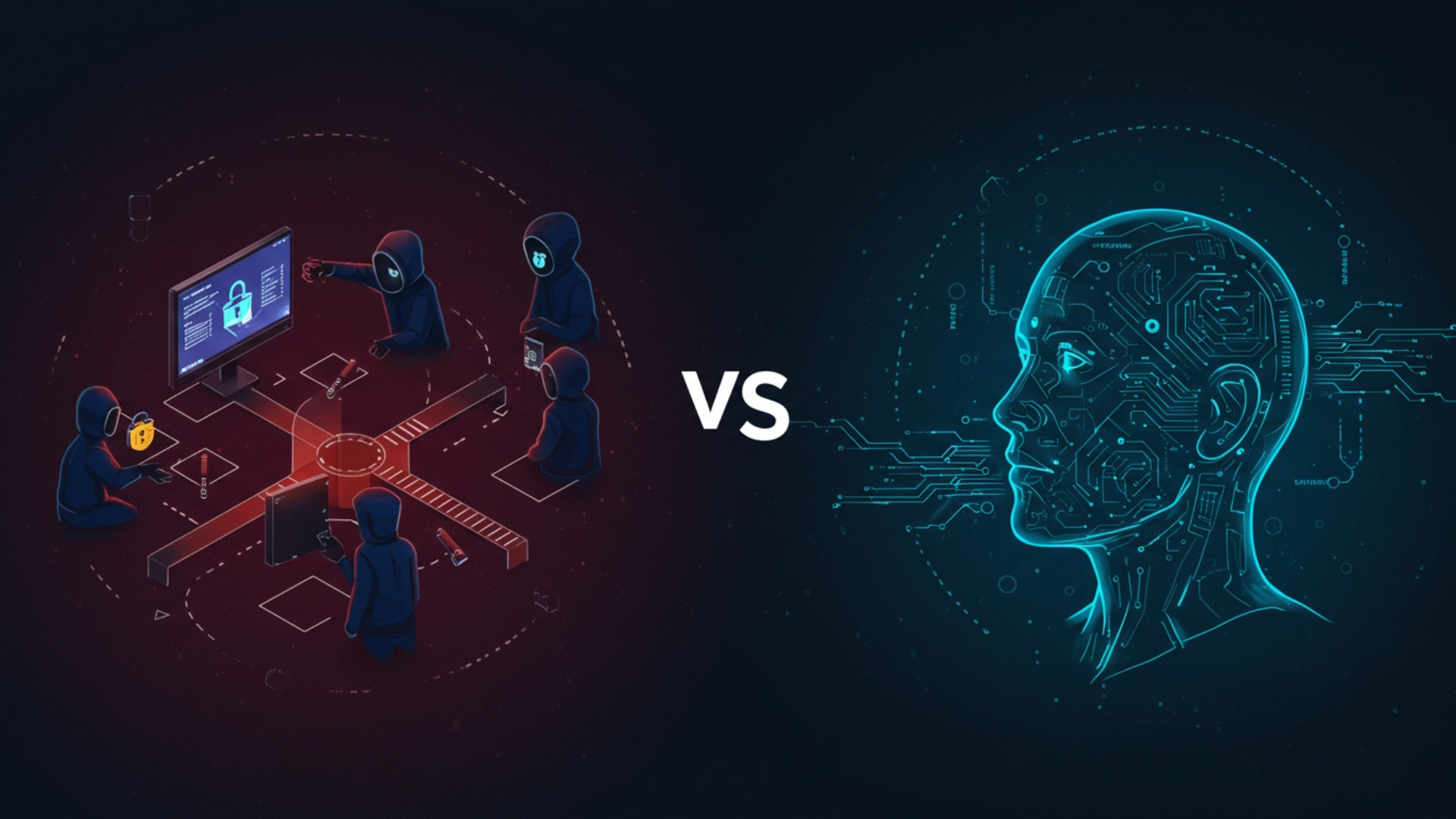Table of Contents
1. Introduction: The Debate Between Cybersecurity or Artificial Intelligence
With technology evolving rapidly, two of the most sought-after fields are Cybersecurity and Artificial Intelligence (AI). Both offer exciting career opportunities and high salaries, but many aspiring tech professionals ask the question: Which is easier to learn, Cybersecurity or Artificial Intelligence?
This article will break down the complexities of each field, compare the skills required, and provide insights into career opportunities. By the end, you’ll have a clear understanding of which path may be the best fit for you.
2. What is Cybersecurity? Understanding Its Challenges
Cybersecurity is the practice of protecting networks, systems, and data from cyber threats. It involves safeguarding sensitive information from hackers, malware, and other cyber risks.
Key Aspects of Cybersecurity:
- Network Security – Preventing unauthorized access to networks.
- Ethical Hacking – Penetration testing to identify system vulnerabilities.
- Data Encryption – Securing data using cryptographic techniques.
- Incident Response – Managing and mitigating cyber threats.
- Compliance & Regulations – Following legal frameworks like GDPR and CCPA.
Challenges in Learning Cybersecurity:
✅ Requires logical thinking and problem-solving skills.
✅ Involves constant learning due to evolving threats.
✅ Beginners can start with entry-level certifications like CompTIA Security+.
3. What is Artificial Intelligence? How Complex is It?
Artificial Intelligence (AI) refers to machines and algorithms that simulate human intelligence. AI applications range from chatbots and voice assistants to complex machine learning models that analyze data and automate processes.
Key Aspects of AI:
- Machine Learning – Algorithms that improve through experience.
- Deep Learning – Neural networks that mimic the human brain.
- Natural Language Processing (NLP) – AI-powered language understanding.
- Computer Vision – Enabling AI to analyze images and videos.
- AI Ethics & Bias – Addressing fairness and bias in AI models.
Challenges in Learning AI:
✅ Requires mathematical and programming knowledge (Python, TensorFlow).
✅ Involves understanding complex algorithms and data structures.
✅ Steeper learning curve compared to Cybersecurity.
4. Cybersecurity vs. AI: A Comparison of Learning Difficulty
| Factor | Cybersecurity | Artificial Intelligence |
|---|---|---|
| Learning Curve | Moderate | Steep |
| Mathematical Knowledge | Basic algebra & logic | Requires statistics & calculus |
| Programming Required? | Not always (except scripting) | Yes (Python, R, TensorFlow) |
| Hands-on Practice | Practical & scenario-based | Algorithm & data-driven |
| Time to Learn Basics | 6 months – 1 year | 1 – 2 years |
Verdict:
- Cybersecurity is easier for those with strong analytical skills and problem-solving abilities.
- AI requires a deeper understanding of math, coding, and algorithms, making it harder for beginners.
5. Job Market and Career Opportunities
Both fields are highly in demand, but they offer different career paths.
Cybersecurity Careers:
🔹 Cybersecurity Analyst
🔹 Ethical Hacker / Penetration Tester
🔹 Security Engineer
🔹 Chief Information Security Officer (CISO)
AI Careers:
🔹 Machine Learning Engineer
🔹 AI Research Scientist
🔹 Data Scientist
🔹 AI Product Manager
Salary Comparison
- Cybersecurity Analysts earn $80,000 – $120,000/year on average.
- Machine Learning Engineers earn $100,000 – $150,000/year on average.
6. Required Skills for Cybersecurity and AI
Cybersecurity: ✅ Networking & system administration
✅ Risk management & threat detection
✅ Cybersecurity certifications (CISSP, CEH, Security+)
Artificial Intelligence: ✅ Python & R programming
✅ Machine learning frameworks (TensorFlow, PyTorch)
✅ Understanding of statistics & probability
7. Tools and Resources for Learning
Cybersecurity Tools:
🔹 Wireshark – Network analysis
🔹 Kali Linux – Ethical hacking
🔹 Metasploit – Penetration testing
🔹 OWASP ZAP – Web security testing
AI Tools:
🔹 Python – Programming language for AI
🔹 TensorFlow – Machine learning framework
🔹 Jupyter Notebook – AI model development
🔹 OpenCV – Computer vision library
8. Final Verdict: Which One is Easier?
Cybersecurity is easier for those who prefer hands-on security practices, problem-solving, and system protection. You can start learning with online courses and certifications like CompTIA Security+ or CEH.
Artificial Intelligence is harder due to its mathematical depth, programming requirements, and complex algorithms. However, if you enjoy data science and coding, AI is an exciting and lucrative field to explore.
9. Conclusion: Choosing the Right Path for You
Both Cybersecurity and Artificial Intelligence offer rewarding careers, but the choice depends on your skills and interests.
💡 Choose Cybersecurity if: You enjoy ethical hacking, network security, and system protection.
💡 Choose AI if: You love coding, data science, and building intelligent systems.
📌 What do you think? Which field interests you the most? Comment below! 🚀
🔹 Subscribe to Encyclotech for more tech insights!

